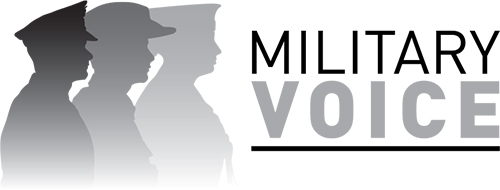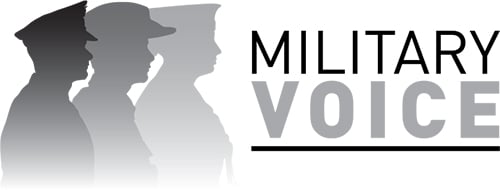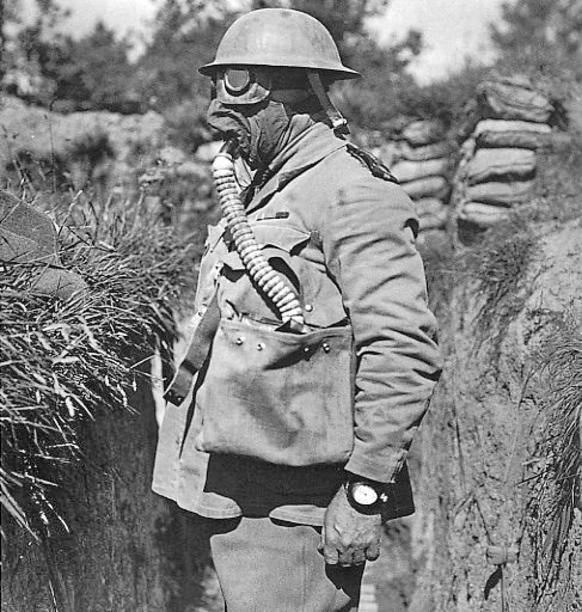LIEUTENANT COLONEL (Chaplain 1st Class) THE REV FREDERICK JAMES MILES DSO OBE VD MID
At the age of 15 I enlisted for fun in the part-time Militia in England and quickly rose to the rank of Sergeant. On my 18th birthday, a colleague and I tried to enlist in the Lancers, or “cherry pickers” as we called them, but was classed as overweight. On leaving the Lancers recruiting depot we “bumped” into a recruiting Sergeant for the 6th Royal Warwickshire regiment which was not yet at full strength and open for enlistment. The Commanding Officer had applied to St James Barracks, London, for 6 young men with educational qualifications suitable to make good NCO’s. As I had recent military experience as a Sergeant with the local Militia unit, my name was put forward.
Instead of joining other recent Battalion enlistee’s at the training depot, I joined the Battalion in Ireland and was quickly promoted to Lance Corporal. My sister Battalion was stationed in the Punjab Defensive Zone in India & I was soon posted to join them spending most of my time on staff duties such as reorganising and cataloguing the officer’s library. Shortly thereafter I was posted to Ceylon, promoted to Sergeant, and became a drill instructor with the special task of training young subalterns who had recently joined the Battalion.
After 6 years of service overseas I purchased my discharge to become a Missionary and studied for the Ministry for 9 years. After 12 years in “the East” I was “called” to Western Australia where I was commissioned as a Chaplain. Later, after moving to Victoria, I was promoted to Senior Baptist Chaplain in the Commonwealth of Australia. At this time we did Chaplaincy work on an honorary basis, voluntarily. I went to a camp of training each year. My son was an officer in the City of Melbourne Regiment and I naturally drifted into being it’s unofficial Padre.
When World War One broke out it had been decided that the Senior Chaplain of each Denomination in each state should be made a Chaplain First Class with the rank of Colonel. Some of my brethren had already received their promotions, but in Victoria, my promotion had not come through because the formation of the AIF was taking place there and priorities were elsewhere. I went into camp with the newly formed 6th Battalion AIF, when war broke out, and received my commission as a Chaplain in the AIF after unanimous nomination by every Baptist, Congregational and Church of Christ Conference in Australia. I went on active service as a Captain while other men who had never done a day’s work in the forces went out as Colonel’s. We were paid according to rank so I suffered a loss of several hundred pounds before finances were equalised and all Padre’s received the same pay in the AIF.
I served in the AIF in Egypt, went in advance to Mudros and was at the Gallipoli campaign, landing with the 6th Battalion in the Second Wave on Sunday the 25th of April 1915, through to the Evacuation in December.
"We had to climb down the ships rope ladder into our boat. There were about 10 boats and 25 men in each boat. A tug took us within 100 yards of the beach and we had to row the rest of the way. The shrapnel was bursting all round us, also machine guns, & rifle shot. We lost a lot of men before we landed, but our boat got ashore safely. The Naval Officer in our boat - a big fat chap - when shrapnel burst within a yard of us laughed and said "Oh never mind them, the beggars couldn't hit a hay stack”.
“I believe the first lads to arrive fixed bayonets in the water & did not wait for any orders but simply charged the Turks. Some of the Turks dropped their guns & cried for mercy, which they didn't get, and the rest ran for their lives”.
"Well we finally landed. We ran about 100 yards up the beach & then took a rest & then word came to go up into the firing line at once. The boys threw their packs away and then got on with the game. The country was so rough and scrubby that you couldn't see where you were going and the shrapnel was bursting all round them as they advanced. The bullets were so thick that initially the boys thought they were bees buzzing about them. As the boys took off inland I immediately started to attend the many wounded & dying that were now gathering on the beach”.
After the Landing I accompanied what remained of the 2nd Division to Cape Helles where they took part in the Battle for Krithia alongside their British & French counterparts who, after the battle referred to the Australian’s as “White Gurkhas”.
At the request of the Officer Commanding Communications, General Birdwood, I was granted permission to accompany 3,500 wounded on the Aquitana to England after the Suvla Bay landings. The Aquitana was not a Hospital Ship and we zig zagged home in eight days. She was quickly painted and registered in Southhampton as a Hospital Ship and we returned to the Dardanelles in under five days. I was wounded in action on Gallipoli at ANZAC Cove, suffering a shrapnel wound to the head in October 1915.
After the evacuation I served in Egypt and on the Southern Peninsula during operations against the Turks in defence of the Suez Canal. I was sent in advance to France & saw active service in the Bois Grenier Salient during May - June 1916. At this time I was the only Australian Padre allowed in the front line & was there for 42 days without a break. During this period I was under severe shell-fire for 5 days straight & for 3 days & nights I went without a break while attending the wounded.
The 6th Battalion’s next stop in France was at Pozières in the Somme valley in July 1916. During the Battle of Pozieres the 6th Battalion had endured a rather harrowing time in the front line with constant shelling the like of which had never before been experienced. As my boys who had survived this ordeal were being relieved from the front line I decided I could not leave with them & that my place was beside the replacement troops who were taking their place in the front line. Knowing what they were yet to experience I could not, in good grace, leave them to face this ordeal without their Chaplain at their side. For this action I was awarded the Distinguished Service Order. After Pozières the Battalion fought near Ypres, in Flanders, before returning to the Somme for the winter.
DISTINGUISHED SERVICE ORDER
“During Operations in the Fleurbaix Sector, Chaplain Miles did very valuable work among the men in the front line trenches. When the Battalion went back into Reserve Chaplain Miles remained with the relieving unit as he considered that his place was among the men who were in most danger & enduring the greater discomfort. At Pozieres he was at the Advanced Aid Post where he rendered valuable service in assisting with the wounded & burying the dead. This work being done at considerable personal risk. During the time that the Division has been in the Ypres Salient Chaplain Miles has rendered splendid service.”
I was now promoted to Senior Chaplain UB and OPD to the AIF. This meant that I was now the Senior Chaplain in the Brigade, the Division, & the Australian Imperial Force.
From 1917 my work grew at such a rate and so many new Chaplains were being sent to the front that Earl Birdwood sent me to AIF Administrative Headquarters in London so that I could meet the new Chaplains as they arrived and determine “face to face” what they were suited for and where they should be placed. I would then travel to the “Front” in France to visit the Padre’s for about 3 weeks out of each quarter.
Prime Minister Billy Hughes came out to visit the troops after the Armistice & during the demobilisation period, during which time I was arranging for Officers & men to take special courses to fit them for civil life while they where waiting in England. Mr Hughes invited men who had complaints to write to him. They did so in such numbers that he handed them to Senator Pearce, Minister for Defence, who was in London at the same time. He asked Earl Birdwood to appoint a man to deal with them and he selected me. I was given a staff, including detectives and authority to adjust any hardships, etc, men had incurred. But it worked the other way around. We found women in Australia who had “married” several men and were drawing allowances. So through my department the Commonwealth saved several thousand pounds and some of these folks were prosecuted.
In conference with Senator Pearce I told him that in my War Diary I had made several suggestions & recommendations which he would find awaiting him on his return to Australia. He said, “Why wait? Tell me what they are now”. I did & he put them into immediate effect. Many of my Ministerial friends in Australia were not pleased by the abolishing of rank for Padre’s etc. During this period I was frequently appointed to represent the AIF & Australia at public functions in Westminster Abbey, St Paul’s Cathedral, etc. After the Armistice I was chosen to deliver the address at the first great Commonwealth Services held in the Central Hall, Westminster, before over 4,000 people & on the same day represented Australia at Westminster Cathedral.
After the Armistice, awards were made, among others, to the Senior Chaplains. They were all Colonel’s, I was a Lieutenant Colonel, to which rank I had risen on the field. So, they all received the CBE or CMG and I the OBE. The Church of England Senior Chaplain had had to return to Australia long before I did, had none of the responsibility I had & he was awarded a CMG! It was suggested that I take steps to see that I was fairly treated & given the same award. I did NOT follow this suggestion.
Quite unknown to me one of the Padre’s who belonged to the same church as Senator Pearce, complained to him & pointed out that there was no comparison between the other Chaplains & myself & that I had been badly treated. He, as Minister for Defence, referred the matter to Field Marshall Earl Birdwood who sent for me & asked me what my complaint was. As I knew nothing of what had happened I stated that I had no complaint to make. But the insidious distinction that I had complained caused a lot of unkind comment at AIF Headquarters.
The fact that I never once complained or asked for any special reward for myself is evidenced by the fact that Field Marshall Earl Birdwood wrote the foreword to my book titled “Triumph For The Troops”. Unlike other Padre’s I was to busy with my day to day duties during the war to write a book on my wartime experiences. although I did donate my War Diary to the Australian War Memorial.
FOREWORD TO TRIUMPH FOR THE TROOPS
“My old war time comrade, now Colonel the Rev. F.J. Miles, DSO, OBE, VD, has asked me to give him a very few words as an introduction to his most recent publication, which is to follow nearly twenty children whom he has already sponsored into the world of discerning readers. I hope that many who are acquainted with his first-born, “Why was Jesus our File-Leader?”, will have opportunity of seeing this, Padre Miles’s latest work, for I know how much they will appreciate it. Knowing as I well do what the feelings of many thousands of my old AIF comrades were for Padre Miles, I know how much they will look forward to the publication of his latest work, and I know too how fully they will appreciate it. I heartily wish all good fortune to my old comrade and every success to his work.”
Signed: Birdwood, Field-Marshall
I was the ONLY Senior Chaplain to serve throughout the entire war from 1914 until my discharge in 1920, when I returned to Australia & spent the next 3 months Travelling & Lecturing on “Glimpses of Gallipoli” & “Chaplaincy Cameos”.
“It was my proud privilege to serve our great boys!”
FOOTNOTE: Chaplain Miles was placed on the retired list in 1925 with the rank of Colonel. His eldest son, Lieutenant Herbert Frederick Miles, 39th Battalion, AIF was killed in action on the 8th of May 1918 whilst in charge of a fighting patrol probing near Morlancourt. During the Second World War Chaplain Miles served with the Russian Missionary Society in the United Kingdom & the USA. His youngest son, Lieutenant Richard John Miles, Royal Engineers, was killed in action in Germany on the 2nd of April 1945, a mere 3 weeks before the German surrender. Chaplain Miles’s medals & decorations that he was awarded for his service during World War One were destroyed during the Blitz on London on the night of the 10th/11th of May 1941 when they were stored in a supposed fire proof safe at the Headquarters of the Slavic Missionary Society situated at 43 Newington Butts. Approval was given for the full replacement of all Chaplain Miles’s awards & decorations & were finally delivered to him in 1959! The DSO, OBE & VD are un-named as usual. The 1914/15 Star is officially impressed, “SNR CHAPLAIN F J MILES AIF” although for some unknown reason the 1914/18 War Medal & WW1 Victory Medal were re-issued un-named.
By Allan Fuary,








Leave Comment